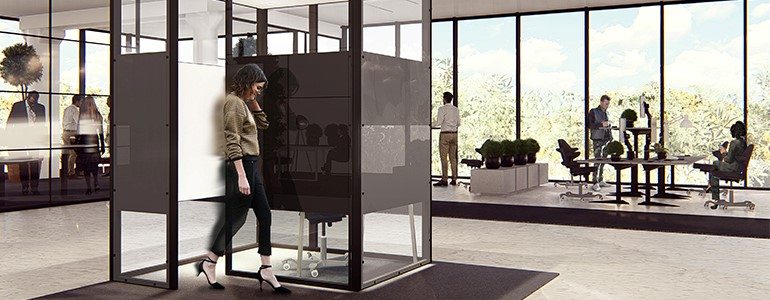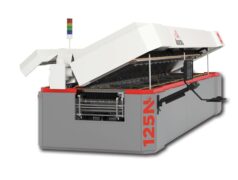Concentration and open plan offices; a challenging combination You are no exception if you sometimes find it difficult to concentrate on your tasks at work. Many of us now work in shared open plan spaces with terrible acoustics and limited privacy. Deep concentration is soon disturbed in such spaces.
The flow Yet people actually find deep concentration, or even a state of flow, pleasant. When we are engaged in a relatively demanding activity in which an optimal balance between the requirements of the task and individual skill level exists, then flow is possible.
Flow is primarily associated with pleasure and the intrinsic motivation to complete a task and to enhance existing skills. You could say that the more we are in flow, the happier we feel. It is thus very much in the interests of both employee and employer to increase the chances of experiencing a state of flow.
Flow is characterized by a subjective experience of effortless involvement in a task and a high level of focused attention and a feeling of control while suspending self-reflective thoughts.
Personality-Based Working It can take 20 minutes or more to achieve a state of concentration, which in turn can lead to flow. Such a state can also be spoiled instantly; by being interrupted by loud music, a telephone call, or a noisy colleague, for example. How you react to a high volume of stimuli can depend on your personality, asserts Florijn Vriend (WELL Building Expert for Kernwaarde Groen) and she ponders; Is the fact that organisations seldom consider what criteria an environment needs to meet in order to align with different personalities a missed opportunity?
Florijn: “For the time being, HR looks primarily at skills, competencies, experience, person-job fit, person-organisation fit, but not person-environment fit. The activities that take place in an organisation are considered from a design and facilities perspective, as is how to make the working environment as comfortable as possible, but not how personalities are split across the available space.”
Wim Pullen, Director of the Center for People and Buildings, has this to say about it; “Personality-Based Working involves having a workspace that suits the personality. If you are an introvert, if you need isolation and quiet, you need a workspace that is not too hectic with people talking over one another and colleagues busy on the telephone. If you have a strong need for personal structure, it is not so bad to subscribe to that satirical office cliché of sitting opposite the same colleague day in and day out, having your coffee break at set times, and eating your sandwiches from the same plastic lunchbox you have used for years.”
Is the fact that organisations seldom consider what criteria an environment needs to meet in order to align with different personalities a missed opportunity?
Personality-based working can be a useful step towards better concentration for the individual. Employees need to be supported as much as possible to achieve a state of deep concentration. Offering separate, flexible spaces that you can use occasionally for a specific purpose (no distractions) could be a solution. The use of such spaces is a sign to colleagues that you do not want to be spoken to for the time being – a clear message. It is easier to find peace and quiet in such a space because acoustically, it is isolated from the open plan area.
Do you find it difficult to tolerate being distracted by colleagues? Are you more of an introvert than an extrovert and do you need to isolate yourself to be able to concentrate? Then the MindPod might be something you could use at work; click on the link to find out more about the MindPod.
For more information please visit www.bakkerelkhuizen










